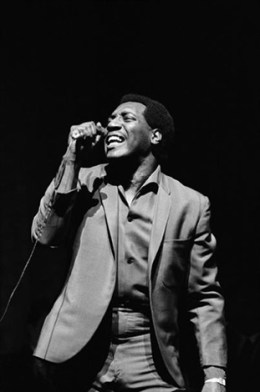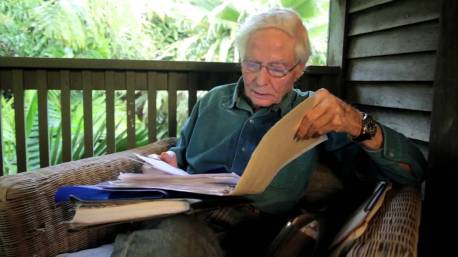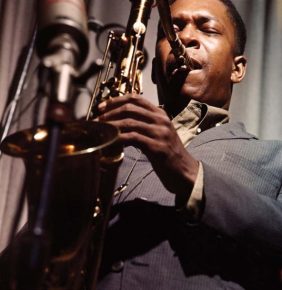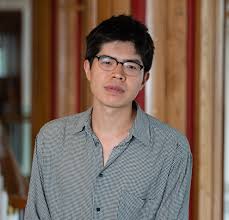As in the previous five years, I am posting – over the summer – my reviews of the 5 collections chosen for the Forward Prizes Felix Dennis award for best First Collection. This year’s £5000 prize will be decided on Sunday 25th October 2020. Click here to see my reviews of all the 2019 shortlisted books (eventual winner Stephen Sexton); here for my reviews of the 2018 shortlisted books (eventual winner Phoebe Power), here for my reviews of the 2017 shortlisted books (eventual winner Ocean Vuong), here for my reviews of the 2016 shortlisted books (eventual winner Tiphanie Yanique), here for my reviews of the 2015 shortlisted books (eventual winner Mona Arshi).
The full 2020 shortlist is:
Ella Frears – Shine, Darling (Offord Road Books) – reviewed here.
Will Harris – RENDANG (Granta Books)
Rachel Long – My Darling from the Lions (Picador)
Nina Mingya Powles – Magnolia 木蘭 (Nine Arches Press)
Martha Sprackland – Citadel (Pavilion Poetry)
 At the heart of Will Harris’ first collection is the near pun between ‘rendang’ and ‘rending’. The first term is a spicy meat dish, originating from West Sumatra, the country of Harris’ paternal grandmother, a dish traditionally served at ceremonial occasions to honour guests. In one of many self-reflexive moments, Harris imagines talking to the pages of his own book, saying “RENDANG”, but their response is, “No, no”. The dish perhaps represents a cultural and familial connectiveness that has long since been severed, subject to a process of rending, and the best poems here take this deracinated state as a given. They are voiced by a young, Anglo-Indonesian man, living in London and though there is a strong undertow of loss and distance, through techniques such as counterpoint, cataloguing and compilation, the impact of the book, if not exactly of sweetness, is of human contact and discourse, of warmth, of “something new” being made.
At the heart of Will Harris’ first collection is the near pun between ‘rendang’ and ‘rending’. The first term is a spicy meat dish, originating from West Sumatra, the country of Harris’ paternal grandmother, a dish traditionally served at ceremonial occasions to honour guests. In one of many self-reflexive moments, Harris imagines talking to the pages of his own book, saying “RENDANG”, but their response is, “No, no”. The dish perhaps represents a cultural and familial connectiveness that has long since been severed, subject to a process of rending, and the best poems here take this deracinated state as a given. They are voiced by a young, Anglo-Indonesian man, living in London and though there is a strong undertow of loss and distance, through techniques such as counterpoint, cataloguing and compilation, the impact of the book, if not exactly of sweetness, is of human contact and discourse, of warmth, of “something new” being made.
 This last phrase comes from ‘State-Building’, one of the more interesting, earlier poems in Rendang (a book which feels curiously hesitant and experimental in its first 42 pages, then bursts into full voice from its third section onwards). This poem characteristically draws very diverse topics together, starting from Derek Walcott’s observations on love (his image is of a broken vase which is all the stronger for having been reassembled). This thought leads to seeing a black figure vase in the British Museum which takes the poem (in a Keatsian moment, imagining what’s not represented there) to thoughts of “freeborn” men debating philosophy and propolis, or bee glue, metaphorically something that has to come “before – is crucial for – the building of a state”. The bees lead the narrator’s fluent thoughts to a humming bin bag, then a passing stranger who reminds the narrator of his grandmother and the familial connection takes him to his own father, at work repairing a vase, a process (like the poem we have just read) of assemblage using literal and metaphorical “putty, spit, glue” to bring forth, not sweetness, but in a slightly cloying rhyme, that “something new”.
This last phrase comes from ‘State-Building’, one of the more interesting, earlier poems in Rendang (a book which feels curiously hesitant and experimental in its first 42 pages, then bursts into full voice from its third section onwards). This poem characteristically draws very diverse topics together, starting from Derek Walcott’s observations on love (his image is of a broken vase which is all the stronger for having been reassembled). This thought leads to seeing a black figure vase in the British Museum which takes the poem (in a Keatsian moment, imagining what’s not represented there) to thoughts of “freeborn” men debating philosophy and propolis, or bee glue, metaphorically something that has to come “before – is crucial for – the building of a state”. The bees lead the narrator’s fluent thoughts to a humming bin bag, then a passing stranger who reminds the narrator of his grandmother and the familial connection takes him to his own father, at work repairing a vase, a process (like the poem we have just read) of assemblage using literal and metaphorical “putty, spit, glue” to bring forth, not sweetness, but in a slightly cloying rhyme, that “something new”.

This is how the best of Harris’ poems are put together. If up-rootedness is the state from which they struggle into existence, the wish to ‘only connect’ is only to be expected and these poems pleasure the reader with their galloping range of reference. Harris is perfectly at ease with the scholarly, with allusions or direct quotes from Coleridge, T.S. Eliot, Hart Crane, Theophile Gautier, Heaney and Sharon Olds. But these are easily matched by unselfconscious nods to Otis Redding, Morrissey, Dr Dre, John Coltrane, Gandalf, The One Show, Sonic the Hedgehog and Wars, both Robot and Star. Such items simply come into the consciousness of the narrative voice as he goes about his daily business and they are assembled by its centripetal force to yield the sense of an individual both open to influences and striving to make sense of them. In ‘From the other side of Shooter’s Hill’, Harris declares his artistic position: “I reject the possibility of narrating any life other than my own / and need a voice capacious enough to be both me and not-me, / while always clearly being me”.
His readers don’t have to accept such limitations of the imagination to appreciate that Harris’s best poems really do possess an enviable “capaciousness” and the skill to piece disparate parts together to evoke the flow of a modern consciousness. ‘Another Life’ makes disparaging remarks about a “short white man” reciting poems which yearn for “a vision of Old England / untouched by foreign hands” and Harris ends with allusions to Isaiah: “Enlarge the place of thy tent”. With a lightness of touch, such points are made about history, culture and ethnicity, but Harris’ voice is less often embattled and bristling, more often open to a variety of individual encounters. Interestingly, in ‘Half Got Out’, Harris seems to be sharing an enthusiasm for W.S. Merwin’s work (via a friend, Leo, who enthuses about it). In one of the many urban meetings in Rendang (“near Leicester Square”), Leo is excited about reading Merwin’s 1983 poem, ‘Yesterday’, in which a narrator is only half listening to a friend talking of his deliberate distancing from his father, the narrator meanwhile recalling his own distance from his father, and thereby creating a distance in the relationship between the two friends (“I look out the window”). This is a very good example of interpersonal ‘rending’, but also (if you look up Merwin’s poem) the fluently unpunctuated lines, the blurring of individuals’ thoughts and speech (but perhaps not the overall tragic note of the poem) can be traced forwards into Harris’ own work.

Formally, Harris likes very long lines of 15 syllables or more, arranged in what are paragraphs more than stanzas. This facilitates the capaciousness of the voice and, in a fine poem like ‘Break’, Harris seems to be effortlessly improvising on the title word (another version of fragmentation and rending). The narrator is emptying coffee grounds (“runny / as the stool of a sick dog” – there is a baggy, chatty quality to Harris’ writing mostly which doesn’t lend itself to the epigrammatic or the vivid apercu, but that’s a good one) just outside the backdoor. The voice is operating on this occasion as if in conversation with a “you” who might object to him dumping the grounds outside but who is currently absent because the pair of them are “on a break”. The nature of the ‘rent’ in the relationship is unclear – brief absence or trial separation? – but the thought of the “break” suggests it as a topic for the narrator poetry writing class. He looks up ‘break’ in the Bible and finds plenty of allusions to it in The Book of Job. From the God of the Bible, the poem, slides to a Sharon Olds poem about God and sex, and perhaps from the latter, we loop back to the broken relationship: “still I frame / my thoughts as if they were to you”. He listens to music in which he hears various types of ‘breaks’ including an improvised one by Coltrane, the band’s resumption after which takes the poem to thoughts on time and change, after the pause or disjuncture, “Everything and nothing is / the same”. The poem ends with imagining a dying dog (the same one who shat earlier in the poem?) and concludes equivocally on death itself (the ultimate of breaks), asking whether it is a withering away or like “daylight breaking through an open door”.

Such a poem is; it does not say. It is not driven by, or filled with, self-regard. Though there is a self about whom a reader may feel concern and sympathy, the portrait of the self remains porous, so radically open, that readers can easily enter into it, Harris thereby creates the magical impression that these might well be our own thoughts. Before this book’s publication Harris was best known for the poem ‘SAY’, shortlisted for the Forward Prize for Best Single Poem in 2018 (listen to Harris reading the poem here). Here too, fragmentation – brokenness – is the initial starting point in block of stone found by the Thames at low tide. On it, the word ‘SAY’. Another is found. On this one the word ‘LES’ (less?). It turns out the two are actually halves of a whole, spelling ‘SAYLES, the name of a now defunct London-based company that once refined sugar from the Caribbean. The sequence of counterpoints and compilations in this case takes the poem from these (light touch) allusions to the slave trade, to an acid attack on Muslims, Rilke’s imperative to “flow” , the narrator’s hospitalised father, Seamus Heaney’s North, the narrator’s mother’s pronunciation of English words, back to the father trying to send a text. As a reviewer, one falls into such ‘accounts’ of these poems because to venture further towards interpretation means to engage in a kind of imposition on the material that Harris himself seems carefully to avoid. Perhaps they demand a new way of talking about poems.

The collection concludes with ‘Rendang’ itself, a longer sequence of poems which is assembled in just the same way, primarily from conversations with a friend called Yathu and the recall of a visit to Chicago. Perhaps it is because of the different choices made about form here (Harris includes a few passages as play script – and you wonder if that is one of the ways this writer will go), but the materials seem to meld less well with each other. Raymond Antrobus’ blurb comment on this book, the first for the new poetry publisher, Granta, praises Harris’ approach to his materials as working “without reduction or sensationalism”. It’s true, there is an accuracy to Harris’ rendering of the self and the ways in which we encounter the other and what is especially enjoyable about these poems is the way in which such concerns are not hot-housed or cordoned off but take place in the complex blaze and banality of our contemporary cultures.
Two interesting and positive reviews, but you haven’t sold either of them to me – not quite.
LikeLiked by 1 person
ha ha – interesting you say that. I think they are both certainly interesting, both trying new things in poems. I suspect Harris will win this year and I’d support that. One has to remember they are first books – the quality of many debuts collections these days is very high – part of me misses the dud experiments, the try-outs and dead ends that such books used to contain.
LikeLike
Perhaps I’m just feeling jaded. I thought you made Ellie Frears sound a bit like I May Destroy You, only white, but I read ‘fucking in Cornwall online, and liked it, and I loved the image of the boyfriend’s little head rising above the chimneys. I’ll look at the Will Harris again too.
LikeLiked by 1 person
I read two exceptional debuts which are not on the Felix Dennis list. This year’s Felix Dennis list is as disappointing as 2020.
LikeLike
What were those 2 books Mdun?
LikeLike
This year’s best debut list saddens me. London-based poets get all the limelight.
LikeLike
I can’t disagree with you Ann – there are signs this year of a rather centripetal London based swirl – look at who is writing the blurbs for example: Martha Sprackland is on the list and also publishes Ella Frears. Rachel Long blurbs for Powles and is also on the list. Mary Jean Chan also is ‘connected’ in various ways. Raymond Antrobus knows everybody! I do think previous lists were more geographically spread but I’d not (yet) proclaim conspiracy.
LikeLike
[…] Will Harris – RENDANG (Granta Books) – reviewed here. […]
LikeLike
[…] Will Harris – RENDANG (Granta Books) – reviewed here. […]
LikeLike
[…] Will Harris – RENDANG (Granta Books) – reviewed here. […]
LikeLike